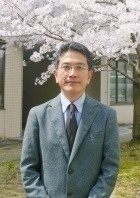Evolving and Universal Information Technology
If the origins of the IT revolution can be traced back to 1994, the year Amazon.com was born, that would be the year I graduated from college. My major was physics, the same as Bezos', and it was also the same as his that I gave up on my physics talents and jumped into informatics. I then moved to Kyushu Institute of Technology (Kyutech) as an Associate Professor in 2002, where I have been ever since. As this example shows, the field of informatics has a wide frontier, and the diversity of people entering the field is a driving force for innovation one after another.
Various information technologies have been created so far. Some have become part of society's infrastructure, while others have quickly faded away. And some are still pending judgment. However, none of the technologies were born one day out of the blue, but rather, in the words of Sir Isaac Newton, "by standing on the shoulders of giants". In other words, any cutting-edge technology is built upon the foundations created by our predecessors.

Hiroshi Sakamoto
Statistics, linear algebra, and calculus are indispensable foundations not only for artificial intelligence but also for modern information technology. Unfortunately, however, young people have not been fully introduced to them. They often say, "We can live without knowing trigonometric functions”. This may have been true until now. However, this is not the case from now on. We will literally not be able to live without them. Today, education in mathematics, data science, and AI is positioned as the modern abacus of reading and writing.
The School of Information Technology is expected to be the driving force behind basic information education at Kyutech. Undergraduate and graduate education must be conducted so that mathematics and programming are not focused on becoming a specialist, but rather a modern-day abacus of reading and writing. We also have the task of promoting recurrent education for working adults and sending information professionals to elementary education. To realize these tasks, I would appreciate your support.










